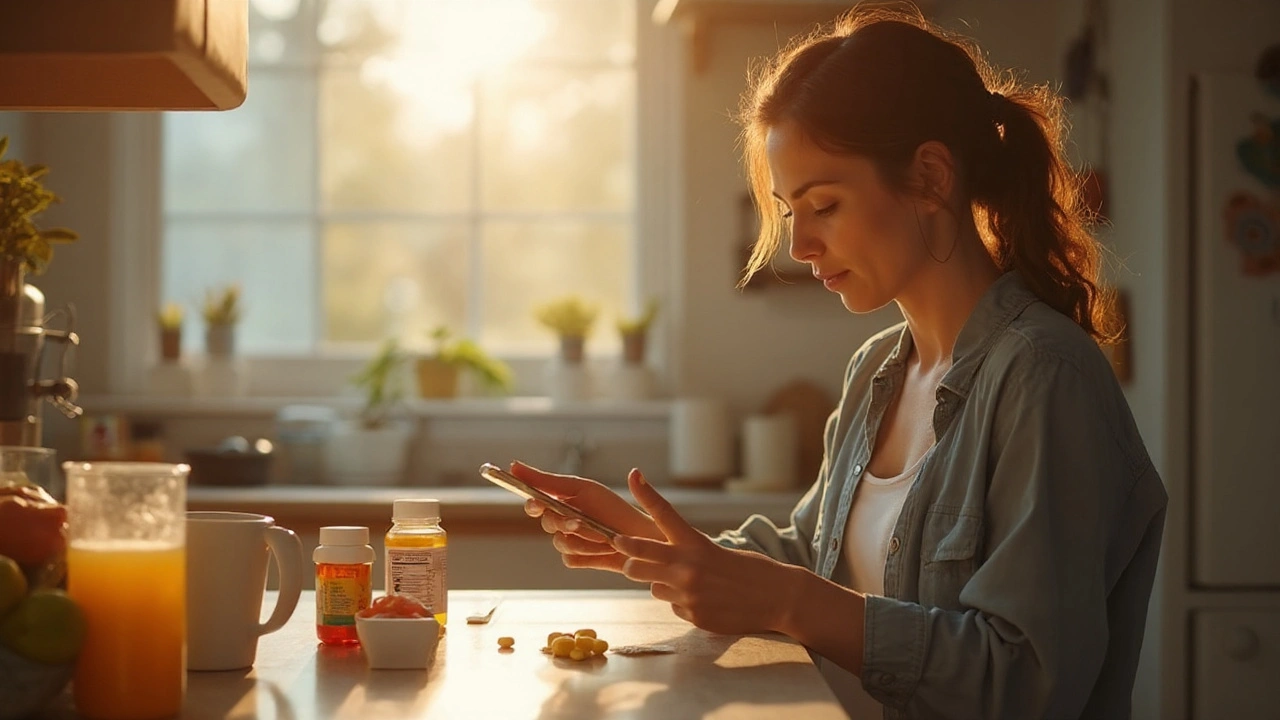Medication Safety Tips: What You Need to Know Right Now
Whether you pick up a prescription at the pharmacy or grab a supplement off the shelf, the way you handle it can make a huge difference. A simple misstep—like missing a dose or mixing meds with alcohol—can turn harmless into harmful fast. Below are the most practical steps you can take today to stay safe with any medication.
Read the Label, Not Just the Headlines
Most people glance at the front of the bottle, see a flashy claim, and move on. The real instructions live on the back: dosage, frequency, contraindications, and potential side effects. Make a habit of reading that section every time you start a new product. Highlight the dosage amount and set a reminder on your phone. If anything looks confusing—like “take with food” versus “take on an empty stomach”—ask your pharmacist for clarification.
Mind Your Expectations: Placebo & Nocebo Effects
Our brains are surprisingly powerful. The placebo effect means you can feel better just because you believe a pill will work. The flip side, the nocebo effect, can make you notice side effects that aren’t really caused by the drug, simply because you expect them. Knowing this helps you stay objective. If you feel a new symptom, check the official side‑effect list before blaming the medication.
Talk to your doctor if you suspect a nocebo reaction. Sometimes changing the way a medication is presented—like using a different shape or color—reduces anxiety and improves outcomes.
Another common pitfall is mixing over‑the‑counter supplements with prescription meds. Even seemingly harmless vitamins can interact with blood thinners, antidepressants, or blood‑pressure drugs. Keep a running list of everything you take and share it with each new prescriber.
Detox Myths Debunked
Detox diets and cleanses promise to “flush out toxins,” but most of the time they do little more than empty your stomach. The body already has liver and kidneys that handle detoxification. Extreme fasting or laxative‑based cleanses can actually upset electrolyte balance and interfere with medication absorption. If a cleanse suggests stopping a prescribed drug, skip it. Talk to a healthcare professional before starting any drastic diet, especially if you’re on medication.
Instead of chasing quick fixes, focus on proven habits: stay hydrated, eat balanced meals, and get enough sleep. Those basics keep your metabolism humming and your meds working as intended.
Finally, use a simple pharmacy dictionary to decode terms you encounter on labels. Words like “contraindicated,” “adverse,” or “pharmacodynamics” sound intimidating but have clear meanings. A quick lookup can turn confusion into confidence, making you less likely to miss a crucial warning.
In a nutshell, medication safety boils down to three things: read the fine print, understand how your mind can shape experiences, and ignore fad detox promises. Stick to these steps, and you’ll protect yourself without needing a medical degree.

Why Drug Interactions Matter: A Simple 2025 Guide to Medication Safety
Drug interactions can turn helpful meds risky. Get a clear, practical guide to spot, prevent, and handle interactions-OTCs and supplements included.
Read More